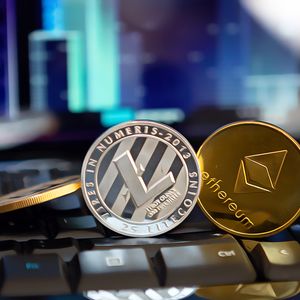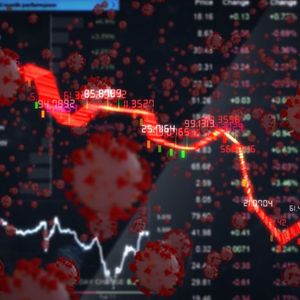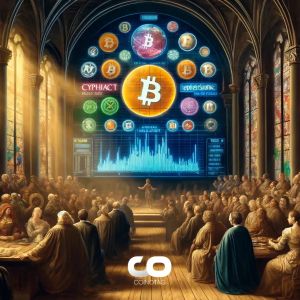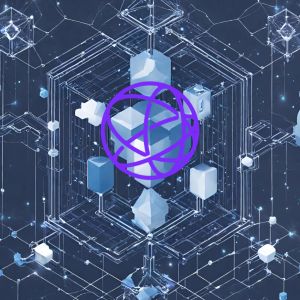The internet is buzzing with Studio Ghibli magic, but it’s not exactly the kind we’re used to. OpenAI’s latest AI image generator, baked into ChatGPT, dropped just yesterday, and already, social media is exploding with AI-crafted memes channeling the iconic style of Studio Ghibli. Think ‘My Neighbor Totoro’ meets Elon Musk – you get the picture? This sudden surge of Generative AI art, while visually captivating, has reignited a critical debate: AI Copyright . Is this playful mimicry just harmless fun, or does it tread into legally murky waters? Let’s dive into the captivating and complex world of AI-generated art and the copyright concerns it raises. Why is OpenAI’s Studio Ghibli Moment Going Viral? It’s hard to miss. Your social media feeds are likely flooded with images that look straight out of a beloved Studio Ghibli film. In just 24 hours since OpenAI launched its new image generation feature within ChatGPT (powered by GPT-4o), users have been enthusiastically experimenting. We’re seeing: Ghibli-fied Celebrities: Elon Musk, Donald Trump, and even OpenAI CEO Sam Altman himself have been reimagined in the warm, whimsical style of Ghibli animation. Altman even changed his profile picture to a Ghibli-esque avatar, showcasing the tool’s immediate impact. Pop Culture Reboots: ‘The Lord of the Rings’ and other iconic franchises are getting the Studio Ghibli treatment, creating fascinating and often humorous crossovers. Personal Transformations: Users are uploading their own photos and asking ChatGPT to reimagine them in the signature Ghibli style, leading to personalized AI art experiences. Users seem to be uploading existing images and pictures into ChatGPT and asking the chatbot to recreate it in new styles. pic.twitter.com/M8B7eqfNzR — Moon Parameter (@ParamMoon) March 26, 2025 This viral trend highlights the accessibility and power of Generative AI tools, following closely on the heels of Google Gemini’s similar image feature, which also went viral for its watermark removal capabilities. Both platforms have made it incredibly simple to mimic copyrighted artistic styles with just a text prompt. But this ease of creation brings us to a crucial question… Does Recreating Studio Ghibli Style Infringe on Copyright? The rapid adoption of these AI image generators has reignited the debate surrounding AI Copyright and fair use. Are these tools, trained on vast datasets that may include copyrighted material, potentially violating copyright law? Let’s break down the legal complexities: Style vs. Substance: According to IP lawyer Evan Brown, current copyright law primarily protects specific works, not artistic styles themselves. This means that simply generating images that *look like* Studio Ghibli films might not, on the surface, be illegal. The Training Data Question: The legal grey area emerges when considering how these AI models learn styles. It’s plausible that OpenAI ’s model was trained on millions of frames from Studio Ghibli movies to achieve such accurate stylistic replication. Fair Use in Question: Courts are actively grappling with whether training AI on copyrighted material constitutes “fair use.” If it doesn’t, companies like OpenAI could face significant legal challenges. Ongoing Lawsuits: The New York Times and numerous publishers have already filed lawsuits against OpenAI , alleging unauthorized use of copyrighted works in AI model training. Similar lawsuits are targeting Meta and Midjourney. Brown aptly summarizes the core issue: “What are the copyright infringement implications of going out, crawling the web, and copying into these databases?” This question remains at the heart of the legal battles surrounding Generative AI . OpenAI’s Stance: Broader Styles vs. Individual Artists In response to the growing copyright concerns , an OpenAI spokesperson clarified their position to Bitcoin World. While ChatGPT is designed to avoid replicating the style of *individual living artists*, it *does* permit the replication of “broader studio styles.” This distinction, however, raises further questions: The Pioneers of Style: Studio Ghibli’s distinctive style is deeply intertwined with the vision of its co-founder, Hayao Miyazaki, a living artist. Can a “studio style” truly be separated from the individual artists who pioneered it? Beyond Ghibli: Users are already pushing the boundaries, successfully recreating styles from other studios like Pixar and even individual artists like Dr. Seuss. This suggests the current limitations might be easily circumvented. studio ghibli is out, dr seuss is in pic.twitter.com/4ECxwLLkoj — Jordi Hays (@jordihays) March 26, 2025 How Does OpenAI’s AI Image Generator Stack Up? To understand the capabilities of these new AI tools, we put several popular image generators to the test, comparing their ability to mimic the Studio Ghibli style. Our findings: AI Image Generator Studio Ghibli Style Replication Accuracy OpenAI (ChatGPT) Highest Accuracy – Remarkably captures the essence of Ghibli’s animation style, including character design, backgrounds, and color palettes. Google Gemini Good – Demonstrates stylistic similarity but sometimes lacks the nuanced charm and detail of OpenAI ‘s output. xAI Grok Moderate – Attempts Ghibli style but results are less consistent and often miss key stylistic elements. Playground.ai Moderate – Can generate Ghibli-inspired images, but requires more prompting and fine-tuning to achieve accurate results. (Left) A real dog vs. (Right) AI-generated Ghibli-style dog by ChatGPT (Credit: Maxwell Zeff/OpenAI) OpenAI ’s new image generator clearly leads the pack in replicating the Studio Ghibli aesthetic, showcasing a significant leap in Generative AI capabilities. The Future of AI Art and Copyright: Waiting for the Courts The overwhelming popularity of OpenAI and Google’s new image features signals a major step forward for Generative AI . The sheer demand has even led OpenAI to delay the rollout of its image tool to free-tier users. While user adoption and technological advancement are rapidly accelerating, the legal landscape is still catching up. The courts will ultimately play a crucial role in defining the boundaries of AI Copyright and determining the legality of training AI models on copyrighted works. For now, we’re in a fascinating, and somewhat legally precarious, era of AI-generated art. To learn more about the latest AI market trends, explore our article on key developments shaping AI features .













